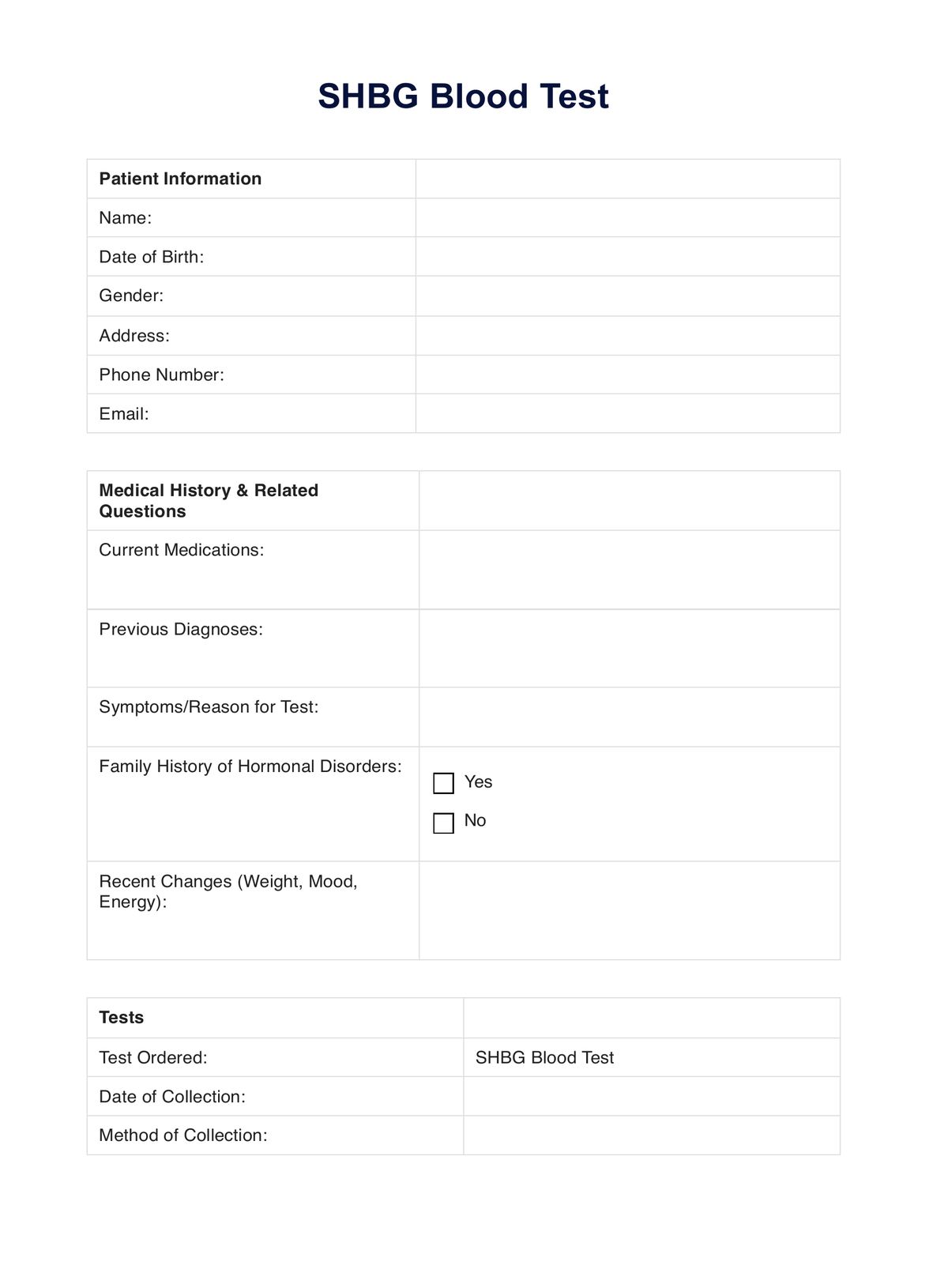Absolutely, Carepatron allows you to view and manage all your test results through its secure online patient portal.

SHBG Blood
Unlock efficient healthcare with Carepatron's SHBG Blood Test management. Seamless, secure, and reliable - the future of health tech is here. Join now!
Use Template
SHBG Blood Template
Commonly asked questions
Yes, Carepatron's telehealth platform enables virtual consultations, making remote healthcare accessible.
Carepatron prioritizes data security, employing advanced encryption and compliance measures to safeguard your health records.
EHR and practice management software
Get started for free
*No credit card required
Free
$0/usd
Unlimited clients
Telehealth
1GB of storage
Client portal text
Automated billing and online payments











